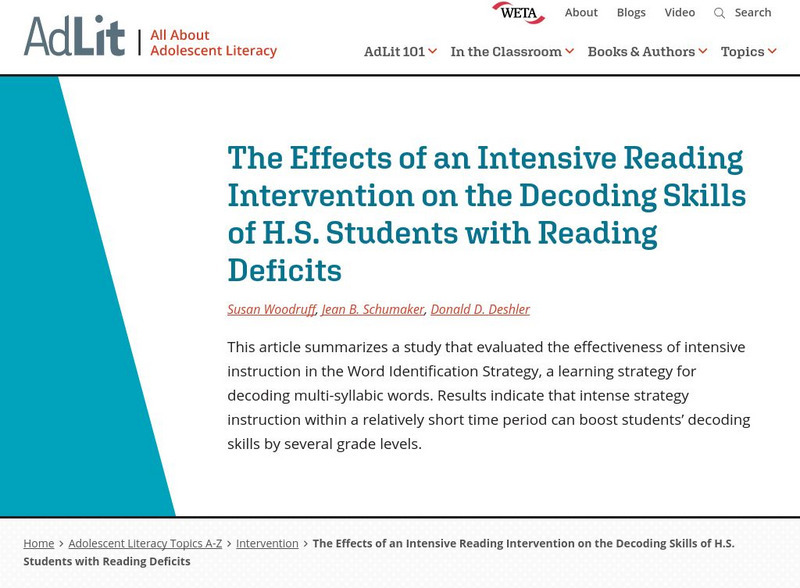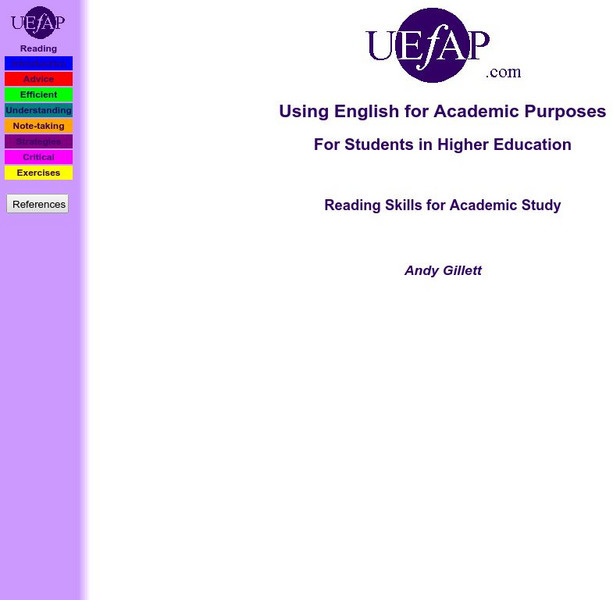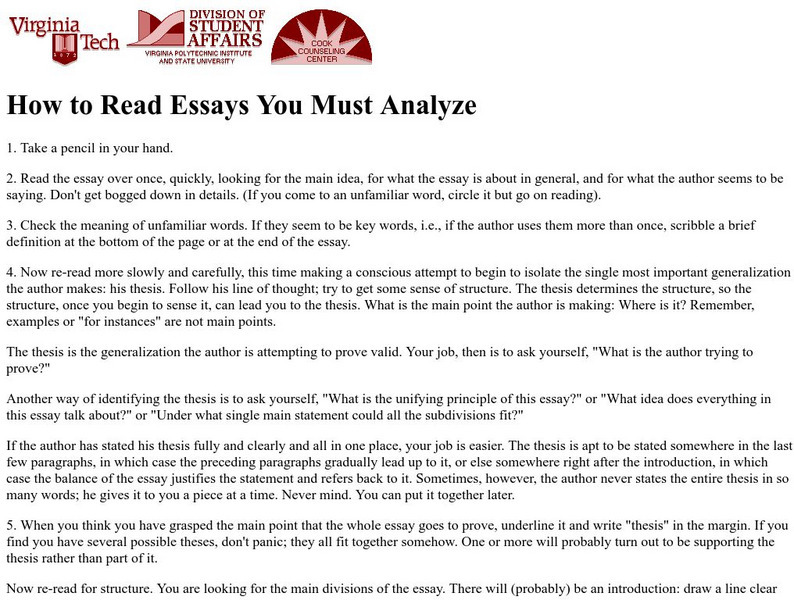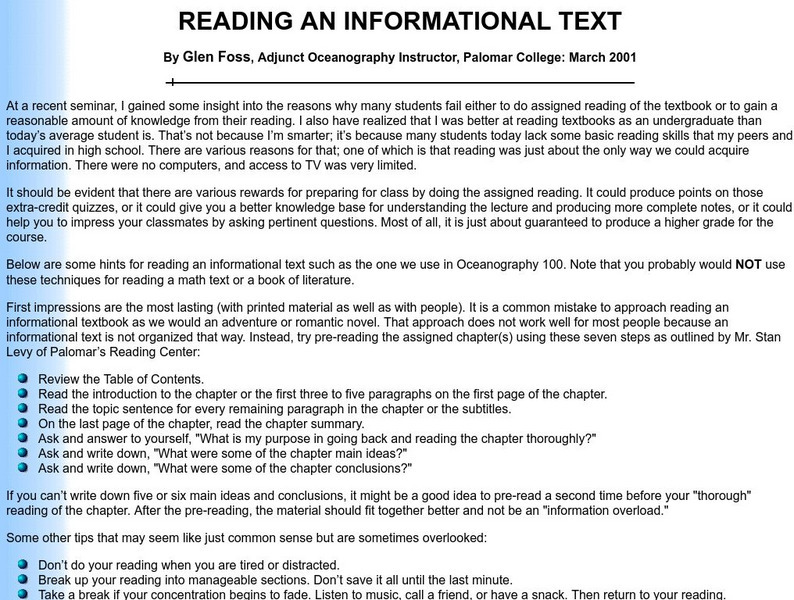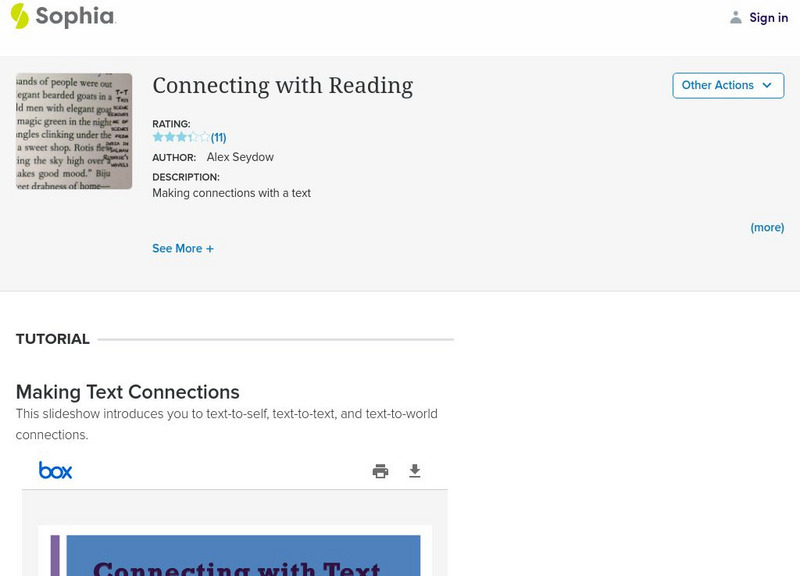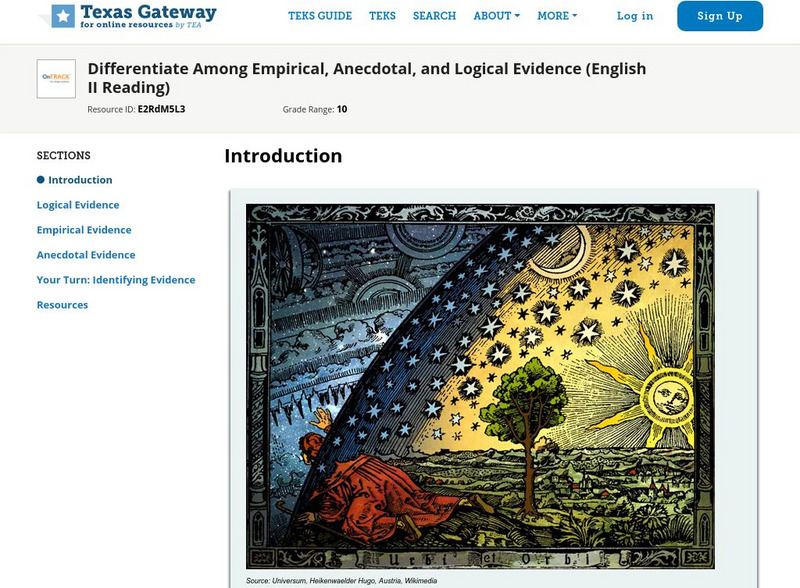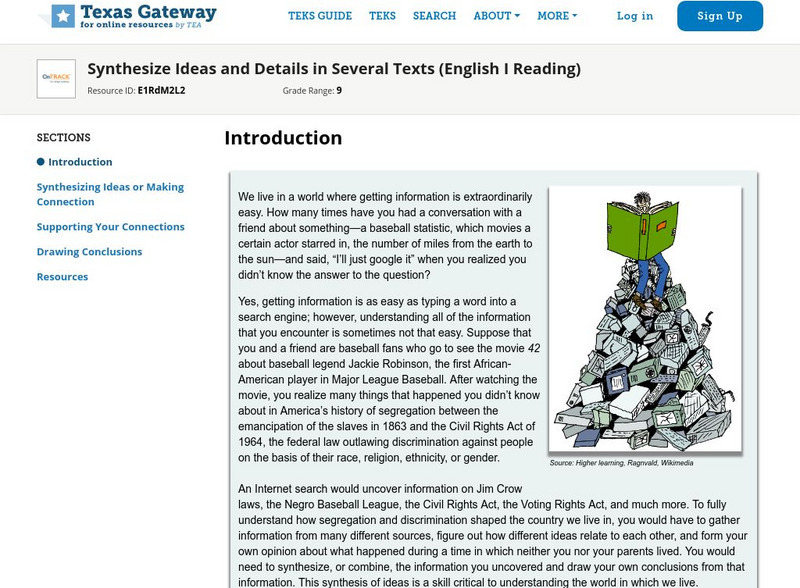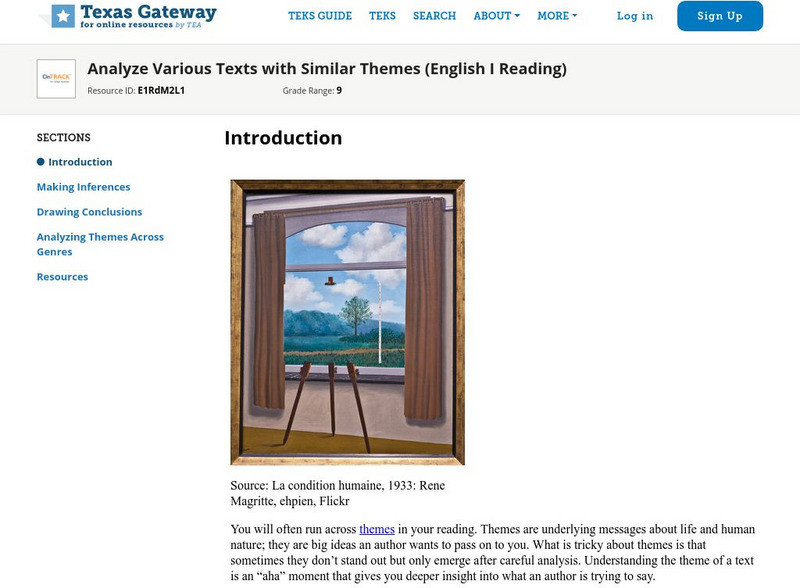AdLit
Ad lit.org: Content Area Literacy: Science
The demands of comprehending scientific text are discipline specific and are best learned by supporting students in learning how to read a wide range of scientific genres. Besides text structures emphasizing cause and effect, sequencing...
AdLit
Ad lit.org: Effects of Intensive Reading Intervention of Decoding Skills
This article summarizes a study that evaluated the effectiveness of intensive instruction in the Word Identification Strategy, a learning strategy for decoding multi-syllabic words. Results indicate that intense strategy instruction...
AdLit
Ad lit.org: A Summary of "Writing Next"
What does research tell us about effective teaching techniques to help adolescents develop their writing skills? This article summarizes Writing Next, a 2007 study of adolescent writing instruction.
E Reading Worksheets
E Reading Worksheets: Writing Persuasive Essays
Persuasive writing is the topic of this article. Students will learn the parts of the persuasive essay and how to write an effective persuasive essay.
Wisconsin Response to Intervention Center
Wisconsin Rt I Center: Close Reading [Pdf]
Teachers will learn about the importance of close reading. Teachers will learn how to implement close reading; measure progress of close reading; and find research to support close reading. A list of close reading activities are also...
Grammarly
Grammarly Handbook: Writing Concisely
This page compares wordy writing to a art gallery cluttered with a mixture of great works and poor attempts making it hard to see the great works. Remove the clutter, write concisely so the reader gets the point of the paper. It offers...
Other
Reading Skills for Academic Study
Designed for university students in the United Kingdom but applicable to English and advanced ESL students in other countries, this tutorial provides strategies and skills for required academic reading loads.
Grammarly
Grammarly Handbook: Body of the Text
This page explains how to write the body of the text from your outline (a link to "How to Write an Outline" is provided). The body must support the thesis and provide evidence and examples to support the thesis.
Grammarly
Grammarly Handbook: Analysis
This page explains that analysis is crucial to the success of a paper as it answers the questions how and why and shows the reader that the writing is knowledgable. Logic and development work together to make the analysis clear. Examples...
Virginia Tech
How to Read Essays You Must Analyze
Provides a detailed discussion on how to approach an essay for analysis.
Palomar Community College District
Palomar College: Reading an Informational Text
Glenn Foss, an instructor at Palomar College, discusses some possible reasons why students have problems reading and recalling textbook material. Provides an outline for seven steps of effectively reading assigned material.
International Reading Association
Reading Online Articles: Comprehension Instruction
An article on improving reading comprehension through time-tested strategies as well as a summary of new hypotheses about effective comprehension instruction.
Wisconsin Response to Intervention Center
Wisconsin Rt I Center: Cloze Passage [Pdf]
Classroom teachers will learn about cloze passages, a contextual analysis instructional strategy. Teachers will learn how to implement cloze passages, understand how to measure progress with cloze passages, find research that supports...
Sophia Learning
Sophia: Connecting With Reading
A brief slideshow that identifies and defines the ways that readers can make connections while reading a text (Text to Self, Text to Text and Text to World) and instructions about annotating while reading. Includes a worksheet that...
Sophia Learning
Sophia: Reading Strategies: Tutorial
In this slideshow tutorial, students will review different types of reading strategies to promote comprehension of text. The strategies included are the following: making predictions, visualizing, questioning the text, retelling,...
Sophia Learning
Sophia: Supporting Details: Facts and Statistics
This lesson discusses how statistics can be used as supporting details. This tutorial shares a short audio lesson [05:16] and supplemental notes with the lesson's content.
Harvard University
Harvard College Writing Center: How to Do a Close Reading
A brief explanation of the tasks involved in doing a close reading in preparation for writing. This writer breaks the process into three steps which involve annotating the text, looking for patterns, and asking questions of the text.
Other
Siu Edwardsville: Professional Development Center: Lesson Plan: Inference [Pdf]
Lesson teaching the use of word selection, context, structure, and specific references in making inferences within non-fiction texts.
Polk Brothers Foundation Center for Urban Education at DePaul University
Depaul University: Center for Urban Education: Inference Organizer [Pdf]
Students will use a graphic organizer to help them make inferences. Students will list the literal text evidence and make an educated guess based on the text evidence.
Texas Education Agency
Texas Gateway: Analyze Texts With Similar/different Purposes
[Accessible by TX Educators. Free Registration/Login Required] Make complex inferences and use textual evidence such as imagery and figurative language to support understanding.
Texas Education Agency
Texas Gateway: Differentiate Among Empirical, Anecdotal, and Logical Evidence
[Accessible by TX Educators. Free Registration/Login Required] Distinguish among different kinds of evidence in a text that supports conclusions and arguments in texts.
Texas Education Agency
Texas Gateway: Synthesize Ideas and Details in Several Texts (English I Reading)
Synthesize ideas and details in texts and support the connections with textual evidence.
Texas Education Agency
Texas Gateway: Analyze Various Texts With Similar Themes (English I Reading)
You will learn how to make inferences and draw conclusions about similar themes in various texts by finding supporting evidence within the texts.

